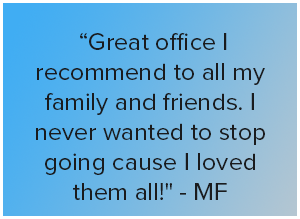Thyroid Cancer
Thyroid cancer is a disease in which malignant (cancer) cells form in the tissues of the thyroid gland.
There are four main types of thyroid cancer:
- Papillary thyroid cancer: The most common type of thyroid cancer.
- Follicular thyroid cancer. Hürthle cell carcinoma is a form of follicular thyroid cancer and is treated the same way.
- Medullary thyroid cancer.
- Anaplastic thyroid cancer.
Age, gender, and exposure to radiation can affect the risk of thyroid cancer.
Risk factors for thyroid cancer include the following:
- Being between 25 and 65 years old.
- Being female.
- Being exposed to radiation to the head and neck as a child or being exposed to nuclear radiation
- Having a history of goiter (enlarged thyroid).
- Having a family history of thyroid disease or thyroid cancer.
- Having certain genetic conditions such as familial medullary thyroid cancer(FMTC), multiple endocrine neoplasia type 2A syndrome, and multiple endocrine neoplasia type 2B syndrome.
- Being Asian.
Medullary thyroid cancer is sometimes caused by a change in a gene that is passed from parent to child. If you or a family member has medullary thyroid cancer, genetic testing counseling is usually required to determine if the gene has been passed on.
Thyroid cancer may not cause early symptoms. It is sometimes found during a routine physical exam. Symptoms may occur as the tumor gets bigger such as
- A lump in the neck
- Trouble breathing.
- Trouble swallowing.
- Hoarseness.
Diagnosis
Tests that examine the thyroid, neck, and blood are used to detect (find) and diagnose thyroid cancer.
The following tests and procedures may be used:
- Laryngoscopy: A procedure in which the doctor checks the larynx (voice box) with a mirror or with a laryngoscope. A laryngoscope is a thin, tube-like instrument with a light and a lens for viewing. A thyroid tumor may press on vocal cords. The laryngoscopy is done to see if the vocal cords are moving normally.
- Blood hormone studies: The blood may be checked for abnormal levels of thyroid-stimulating hormone(TSH). It stimulates the release of thyroid hormone and controls how fast follicular thyroid cells grow. The blood may also be checked for high levels of the hormone calcitoninand antithyroid antibodies.
- Ultrasound exam: This procedure can show the size of a thyroid tumor and whether it is solid or a fluid-filled cyst. Ultrasound may be used to guide a fine-needle aspiration biopsy.
- CT scan (CAT scan): A procedure that makes a series of detailed pictures of areas inside the body, taken from different angles. A dye may be injected into a vein or swallowed to help the organs or tissues show up more clearly.
- Thyroid scan — Most people do not have to have a thyroid scan – only those who have a low TSH level. In these cases, the thyroid scan is the first step after the blood test (instead of the fine needle aspiration). For certain patients that treatment with a radioactive iodide pill a thyroid scan is required.
- Fine-needle aspiration biopsy of the thyroid: The removal of thyroid tissue using a thin needle. The needle is inserted through the skin into the thyroid. Several tissue samples are removed from different parts of the thyroid. A pathologist views the tissue samples under a microscope to look for cancer cells.
- Surgical biopsy: The removal of the thyroid nodule or one lobe of the thyroid during surgery so the cells and tissues can be viewed under a microscope by a pathologist to check for signs of cancer.
Treatment
The treatment of thyroid cancer is primarily with surgery. Surgery generally requires removing the entire thyroid gland (both sides) in a procedure called thyroidectomy. Occasionally, a lymph node dissection in the neck is required as well. Your surgeon will discuss with you the type of surgery and the risks involved. Please see our thyroid surgery section for more information.
If the thyroid cancer is advanced, patients will frequently require radioactive iodide treatment a few weeks after surgery. The radioactive iodide comes in a pill form. When the pill is absorbed, the radioactive iodine is absorbed into the system and travels directly to any remaining thyroid cells in the neck or to metastases of thyroid cancer anywhere else in the body. The radiation destroys those remaining cancer cells. Radioactive iodide treatment is done under the direction of an endocrinologist.
Other treatments of cancer including radiation and chemotherapy are rarely used for thyroid cancer because of the success of surgery and radioactive iodide. Conventional radiation therapy (not the radioactive iodide pill) which is done for many other cancers may only be used in select cases. Chemotherapy is only used for certain aggressive types of thyroid cancer that does not respond to surgery or is not resectable.
Certain factors affect prognosis (chance of recovery) and treatment options, which can be discussed with your doctor.
The prognosis(chance of recovery) and treatment options depend on the following:
- The age of the patient.
- The type of thyroid cancer.
- The stage of the cancer.
- The patient’s general health.
- Whether the patient has multiple endocrine neoplasia type 2B (MEN 2B).
- Whether the cancer has just been diagnosed or has recurred (come back)

